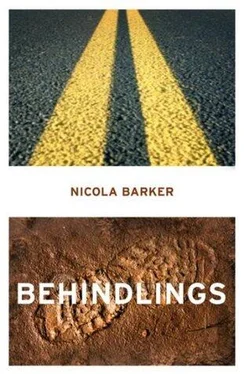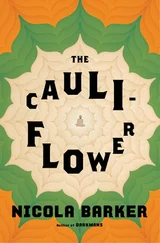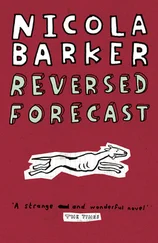But he continued to stare, wondering. I mean would there be anything in it? For him? Could there be? He clenched his hands into balls and remained in place a little longer (just like he had yesterday, and the day before the day before). These industrial people needed to see him. They had to be cognisant. They had to be heedful. They had to be prudent and careful and wary. Or at least — as a matter of pride, a matter of principle, really — they had to think that they had to be.
He walked on. The sea wall was thinner now, several feet off the ground on one side, the other a deep drop into the wide tidal outlet between him and the monster. But soon the monster diminished, its headland wore to nothing, it shrank into a grumbling, monochrome muffle behind him. Now there was just sea. Everything had grown flat and quiet again. Wesley watched his feet.
The foxes liked this wall well enough. They shat on it. It was their boundary. Old, purple faeces, crammed with blackberry and elder and bits of insects. He bounded over these purple markers, conscientiously. He kept his eyes peeled.
Shivering rabbits sat up and appraised him, dwarfed by the harsh, sharp, linear shading of oil-black bridges. Disused. Rusting. Ancient, iron-elbowed rollercoasters, (industrial lemon rind, arcing and looping from nowhere to the sea), black towers, piers, angry dead promontories.
He smiled at them all, gently.
This was the shattered, hacked-up back-bone of a once hard-worked industrial legacy. This was the ancient trash of modernity. These were the scribbles in the margin. This was the graffiti.
But my God — Wesley stopped smiling — all that effort, all that toil and stink and shit and drudgery. And why? And for what? For this? Only the proud, mouldering bones remaining for the wildflowers to strangle, for the thistle to scratch, for the rain to tap upon in hollow melody?
Wesley stared at his feet, with increased attention, but then glanced up again, furtively, and saw a fantastic spidery mast — a spire — just standing right there, in the middle of nowhere — practically whited-out with council warnings — an impossible temptation for any adventurer.
It was getting dark, though, and the concrete of the wall was getting higher and fuzzier against the deepening blue around him. The water was blackening. The gulls were setting off intently, in ranks, towards the freezing pale and darkening grey.
By the time he’d reached the place he needed to be, the sea, the wall and everything remaining were submerged inside a warning blue-black grimace of octopus ink. No stars. The moon low, behind cloud, calling gently to the tide in chilly whispers.
Would she still be there?
Wesley suddenly considered the librarian. Eileen. It was unlikely. It was too cold for one thing. And the fishing pier was closed off by a gate (white-painted, gleaming crudely like false teeth under ultra-violet) with a sign prohibiting entry. How would she have clambered over in those delicate little shoes she’d been wearing earlier? He remembered the shoes, clearly. What had he been thinking, setting up this stupid meeting? And why here?
Wesley pulled his rucksack from his shoulders and threw it over the gate. The gate creaked when he leaned against it. He whistled. Nothing. He pushed at it, tentatively –
Yes.
It opened. There were bushes to the near end — a mass of brambles desperately scrabbling to drag this straying edifice back into the close, warm palm of dry land again. He moved past them. He walked tentatively, the pier creaking. And then…
He saw her.
She was frozen, halfway along, standing in a sudden pool of toothy yellow (the moon’s grin flickering, uncertainly, like a burned-down candle in a gusty stairwell). She was half-turned towards him, her arm outstretched, her fingers beckoning. She was struck dumb. He could see her lips moving.
She pointed.
He looked.
Heron. Right there, on the drop of the pier. Five foot away. Or six. Statuesque in the darkness — the night fog picking him out in a muted tapestry of black and grey. Gaunt but wilting.
Wesley drew closer. The bird shifted but it did not fly. He felt Eileen’s hand reaching out for his. Her fingers so cold she must have been waiting just about forever. Her breath in mist. Her hair like candyfloss. She touched his hand — the cold nose of a kitten — then set it free again.
He was two hours late, and she had waited.
‘We’ve been here,’ she whispered, ‘a long, long while, just listening to the night falling and the moon rising and the sea lapping. It’s been…’ she struggled, ‘it’s been…’
‘It’s late,’ Wesley whispered back to her, ‘I’m sorry.’
‘It’s been…’ she continued, not even countenancing his apology, ‘it’s been heavenly. ’ She paused and drew breath, ‘When I first arrived and it was still light, he tried to fly, but he couldn’t make it. Too weak. He’s an old one. I think this might be… I mean, I think he might be…’
She didn’t dare say it.
They were quiet. The bird shifted. Bone creaking audibly against quill; his last will and testament etching itself, with gradual inevitability, into nature’s cruel registry.
‘Will we save him?’ Wesley asked the sky.
Eileen turned to appraise him fully, ‘ Could we?’
Her eyes were bright with childish expectation; prised wide by dolls’ houses and tin drums and teddies. Trussed up with gilt-edged ribbons. Wesley was suddenly all her Christmases. He was her beardless Santa, bringing flesh and bone and lust and hope, all jumbled up together and slung into the duck-down-trimmed sack thrown over his shoulder.
He smiled. She was so silly. In that moment he thought that he had never seen anyone so full of honest expectation, so sincere, so clean.
He took her hand and raised it to his face (that hand. Cold as a side of refrigerated pork, and softer still. It smelled of apricots). He touched it gently to his cheek.
How he wished he could live in this enchanted place — this hopeful world she inhabited so effortlessly — but it was a strange land — they spoke a different language, had different customs — and its borders were patrolled too closely. It was inaccessible to him; it was cooped and cloistered, trapped deep inside of her. It pumped in her blood: a sweet, scented garden, blooming and shining inside the seven smooth layers of her brilliant skin.
‘But first we must catch him,’ Wesley spoke, ‘and he’s bound to resist us. Are you game, Eileen?’
(Used her name. Used it easily.)
‘Are you ready?’
Eileen drew a deep breath and then carefully adjusted the small velvet collar on her coat. She stood straight and determinedly in her kinky heels. She was primed, at a word, to do his bidding.
Wesley slowly unbuttoned his corduroy jacket, ‘You must move to the left of him, hold his attention. I’ll come from the rear. Perhaps you should be singing something, but only very softly…’
‘But what should I sing?’ she interrupted him, keenly.
Wesley paused. He grinned to himself.
‘Something by…’ he stared at her in the darkness. He could smell the roses on her. Their bruised petals tickled his sinuses. ‘Something by The Carpenters. But hum it.’
Eileen was quiet for a second. It was a beautiful hiatus. Then she drew breath and softly began humming. After three seconds, though, she stopped.
‘ We’ve Only Just Begun… ’ she whispered, ‘do you think he’ll like it?’
‘It’s…’ Wesley felt the sudden urge to pinch and kiss the translucent flesh on the inside of her elbow. He imagined the mauve intensity of those turquoise and lilac veins and his cruel fingers plucking at them, ‘… it’s perfect,’ he told her.
Читать дальше
Конец ознакомительного отрывка
Купить книгу












